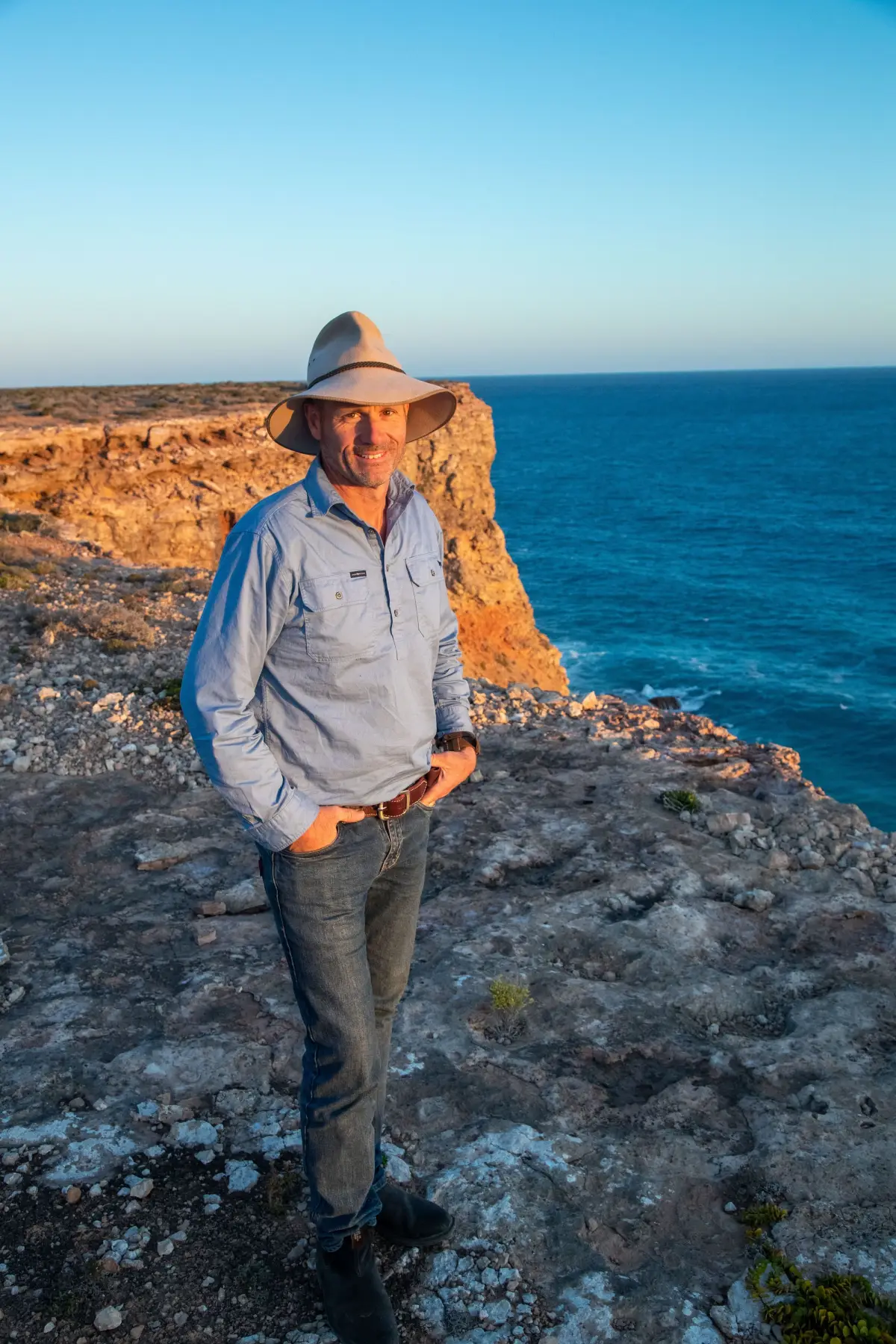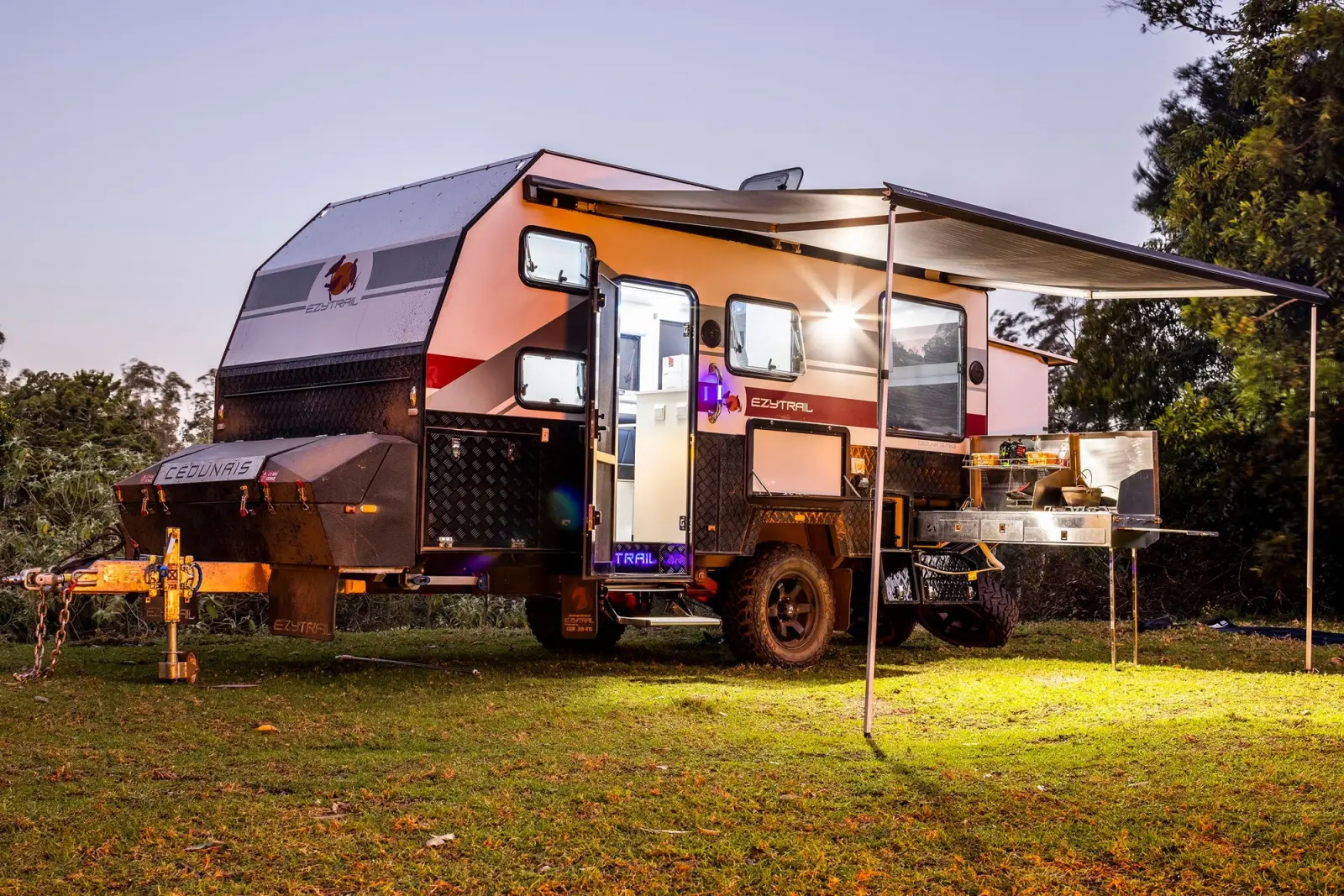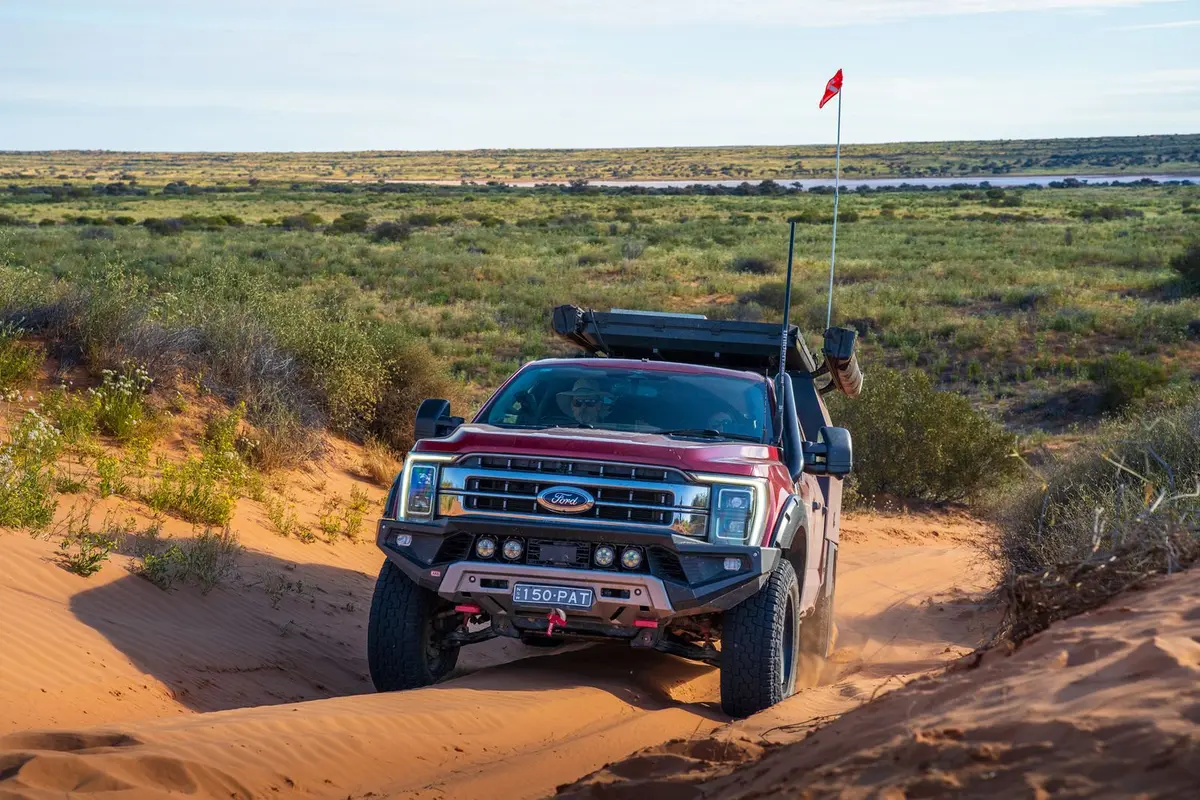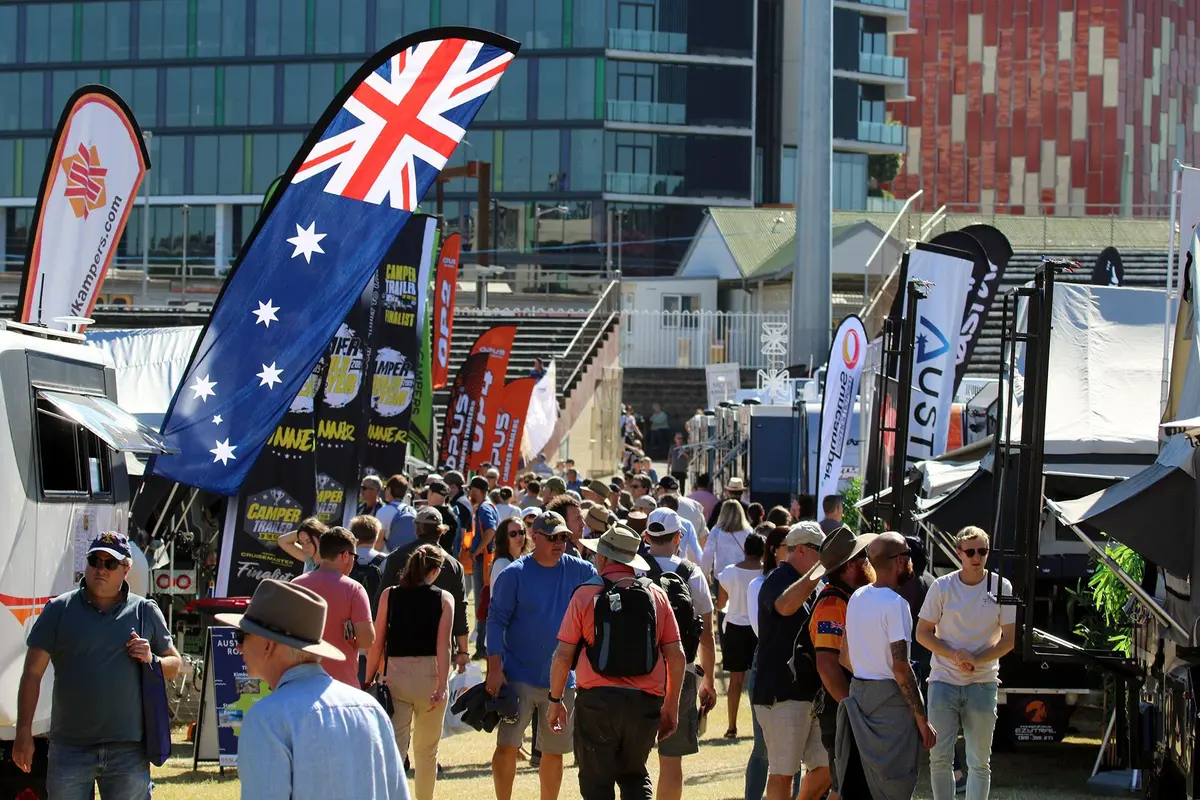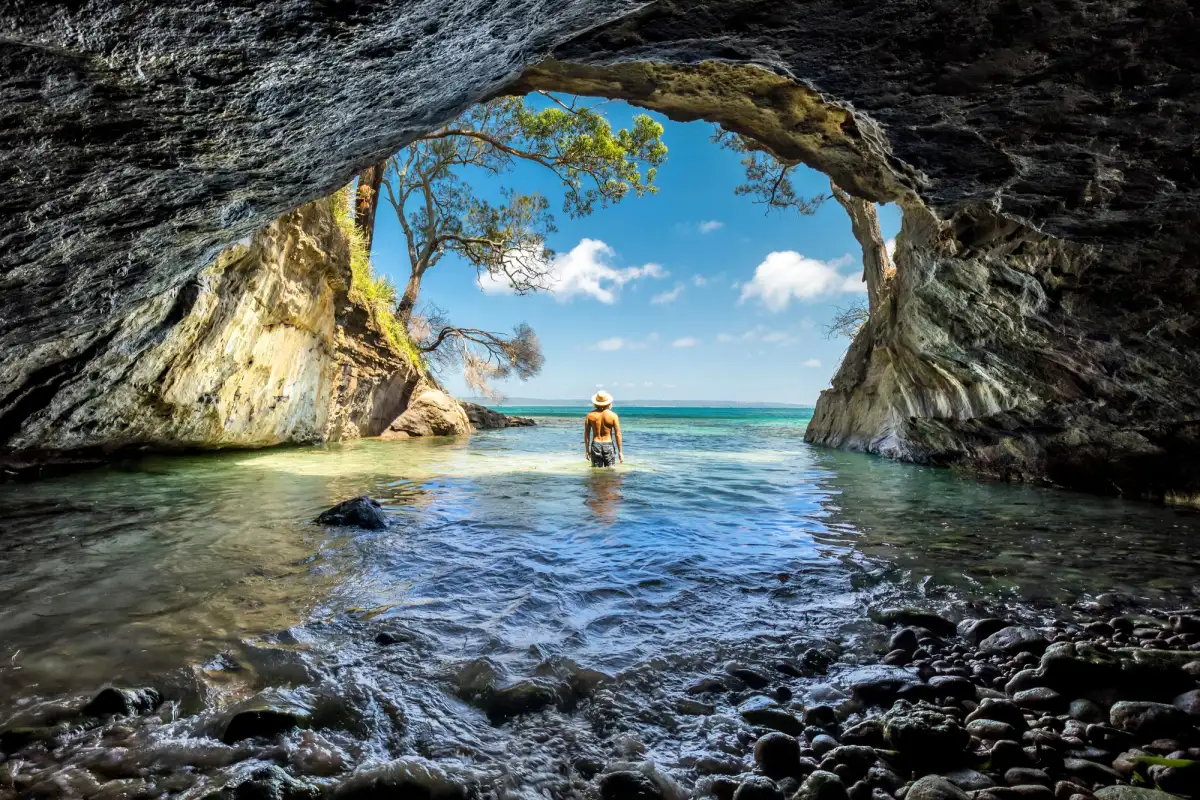We all know the benefits of travel with a camper-trailer or caravan. Comfort, load carrying ability, load spreading, and wet weather awesomeness. Sure, beats a swag in a week-long deluge! Yet in a world of high-tech appliances and high-tech motor vehicles, our quality expectations can be sky high. If you expect your RV to reflect the quality of your 4X4 or iPhone, you will be disappointed. For your own sanity, lower those expectations. A camper-trailer or caravan bought in Australia is a hand-crafted low volume item. Hand-crafted is a nice way of saying ‘made by humans. Now, humans make mistakes; not you and I of course, we’re bloody perfect, but those humans on the production line have been known to make mistakes. So, knowing that RV you’re about to buy might not be perfect, let’s explore the questions you should be asking prior to transferring your cash.
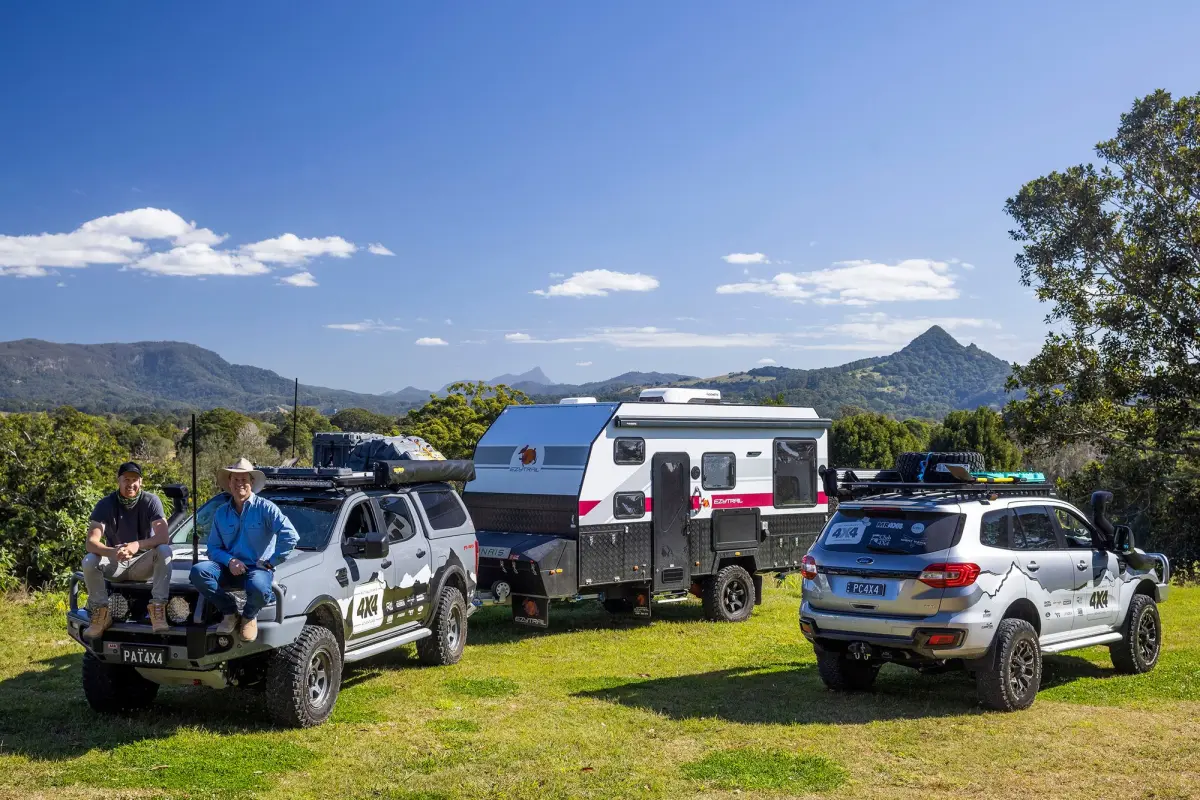
WHO, EXACTLY, AM I BUYING FROM?
Are you buying from a dealer? A manufacturer? An importer? This makes a difference when it comes to purchasing, as you want to know how reputable that company really is, and how long they’ve been operating. Each year at the caravan shows, I see brands I’ve never heard of. Jump onto Alibaba.com, and you’ll see swathes of new RVs available to import – and many of them look quite fancy. They may well be, but what happens when you slap a new sticker on them, import them, and the stub axles fail over the first pothole? Are you covered? You may well be covered if your axle fails in Campbellfield, Victoria. But what about Cunnamulla? Will your company pay for the tow, the parts, and the repair?
Likewise, the caravan scene in Victoria, where more than 95% of Aussie caravans are made, has a history of fly-by-night manufacturers. They sticker-engineer a new caravan, bang out five or ten units, and then go belly-up, evaporating from the scene. So, the longevity of the company matters. It would benefit you to jump online and have a look at owner's forums too. Ask people how they were dealt with when things went wrong with the product.
It also doesn’t hurt to know whether you’re dealing with a franchise, or how the dealer network of the brand is structured. Some companies (JB Caravans and EzyTrail) don’t offer franchises; they own each and every dealer nationally. This is a nice thing, as you’re essentially dealing with the same company you bought the product from. Yet other brands, like Jayco (who account for over 40% of the caravan market), have an extensive service network. So, while they don’t own the service centre, that’s not to say they don’t have good systems in place if something happens under warranty. I’d be more concerned with the single company with no dealer network should something go wrong. How will they deal with a busted bearing?
ARE YOU A MEMBER?
Members of caravan and RV industry bodies are usually more interested in the long-term viability of their industry. This means that they’re often more trustworthy and reliable. However, it should also be understood that membership of these bodies is voluntary and comes with very few strings attached. So, while industry bodies are a good indicator of a company’s ethics, don’t assume that the industry body will go into bat for consumer rights should something go wrong. It comes down to economics. The industry body is being paid by the brand, not by you. Should they help you ethically? Sure. But they’re not being paid by you, so there’s that…
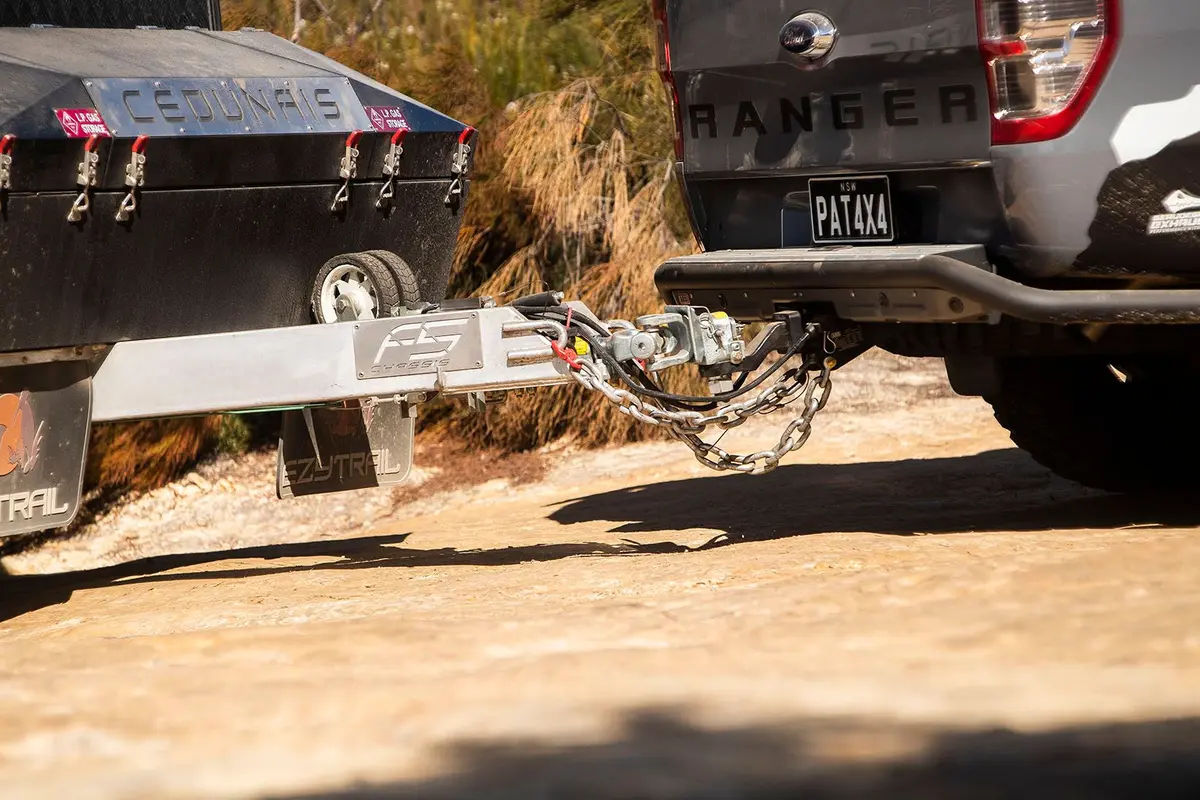
A CONCOCTION OF PARTS
Most caravans and camper trailers are a concoction of parts, assembled by the brand. This isn’t a bad thing. Porsche is one of the finest examples of this manufacturing method, whereby they make hardly any parts, but have them made elsewhere and simply assemble the bits into a motor vehicle. With your caravans and campers, they get windows made at one place, locks made at another (sometimes six different places!), wheels made at another, doors, fridges, air-conditioning, suspension, chassis, electrics etc. Now, this makes sense, as long as the manufacturer takes responsibility for any failures. If, for example, the air-con fails while under warranty, this is the responsibility of the seller. If they say, ‘Take it back to the air-con company’, they’re dodging their responsibility.
YOU WON AN AWARD? WOW, THAT’S…UMM…JUST AWESOME FOR YOU
When you see that big billboard out the front of the dealership exclaiming ‘RV of the Year 2024’, do you know how they got it? Ideally, the publication granting that award road-tested every competitive product on the market without fear or favor. That’s what I used to do when I edited magazines 20 years ago. Want to know what happens now?
Companies pay between $15,000 to $30,000 to be considered for an award. This usually gives them the prestige of calling themselves: ‘Finalist - …. Of the Year 2024’. So already, they’re winning. There’s some fodder for a billboard that sounds legit.
Secondly, the publication responsible for the awards makes up as many categories as possible, to ensure they can hand out as many awards as possible. ‘Best Hard Floor Camper’ ‘Best Between 13 and 13.9ft Hybrid’, Best Off-Road Over 15ft etc. Did they test everything on the market? God, no. Did they test it at all? Well, kind of, sort of. It’s usually all held on one property with a short test track, so as not to damage things. Do they test for dust suppression, corrugations, emergency braking, and high-speed cornering, laden and unladen? Not to the best of my knowledge. Are engineers part of the test team? No.
Oh, and those fees the companies pay for testing? That’s disguised in the proposal as fees for photography and video packages.
I dare you to ask the manufacturer how much they paid for their award. It’s a little cheeky, and they may tell you they only paid for videos and photos, but you’ll know the truth. This is not to say that some fantastic campers and caravans haven’t won awards, by the way – they have. But an award granted by this kind of business model isn’t worth the eleven-dollar trophy they dish out.
CAN I VISIT THE MANUFACTURING FACILITY?
If your RV is built in Australia, why not ask if you can check out the facility? Some factories are clean, efficient, and a credit to the company. Some should never let people through the doors. Rubbish all over the floors, sloppy workmanship, and the vibe of an Eastern European prison. Just be prepared to walk away, even if the price is great. Listen to your gut.
FIT FOR PURPOSE
It’s important to know what sort of adventures you’re after with your RV. Will you stick mainly to the bitumen? Hit the dirt? Or go full-off-road and want to cross deserts, drive up beaches, etc.? Have this honest conversation with the sales staff and ask them if other buyers have been where you want to go with their product. Try to speak to other owners personally. Ask them what, if anything, went wrong. Electrical systems have been known to fail, plumbing and water tanks can fall out, storage boxes can be poorly secured to the chassis, dust can leak in through vents, suspension, and even the chassis can fail. You don’t want to be the first to try the road to Kalumburu with a new RV, only to find it can’t make it.
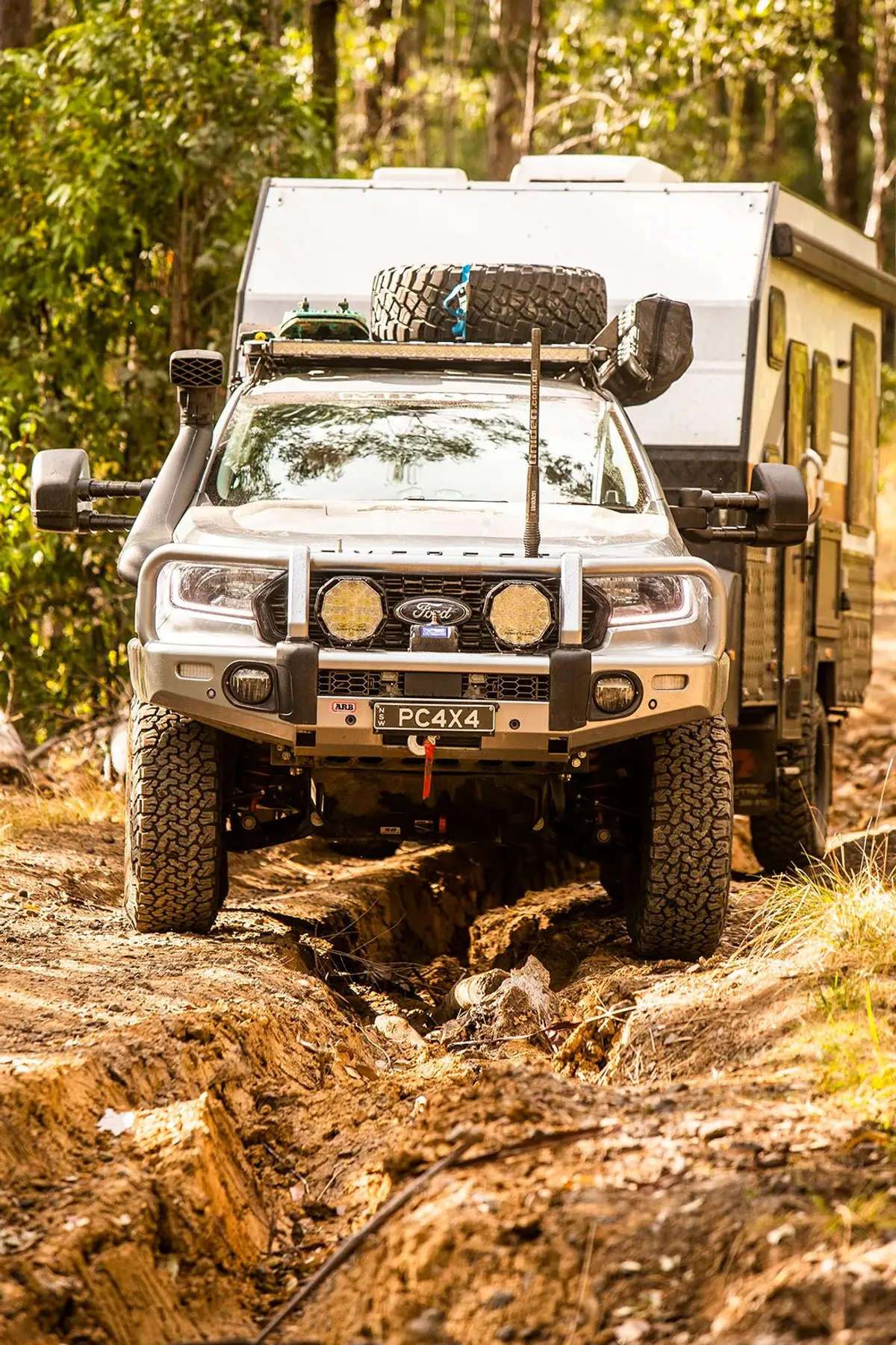
READ THE SALES CONTRACT, KNOW THE WARRANTY & YOUR RIGHTS
Now, that all sounds rather obvious, but I’ve bought camper-trailers before without looking at any of those points. You sometimes get such satisfaction that you’ve finally decided on ‘the’ model, that all that contract and warranty stuff sounds boring. So, take a breath before you sign on the dotted line and check the contract.
BIT OF A NEGATIVE NELLY?
You might read this article and think, gee, this sounds negative! And it is. When you enter into any big financial deal, the contract is designed to delve into any negative outcome that may eventuate post-sale – a little like this article. But if your eyes are wide open, and both you and the seller know where you stand, you’re likely to have a great purchase, and a more serene adventure, safe in the knowledge that if something goes wrong, you’ll be covered.
Need Comprehensive Caravan Insurance
Club 4X4 Have You Covered

